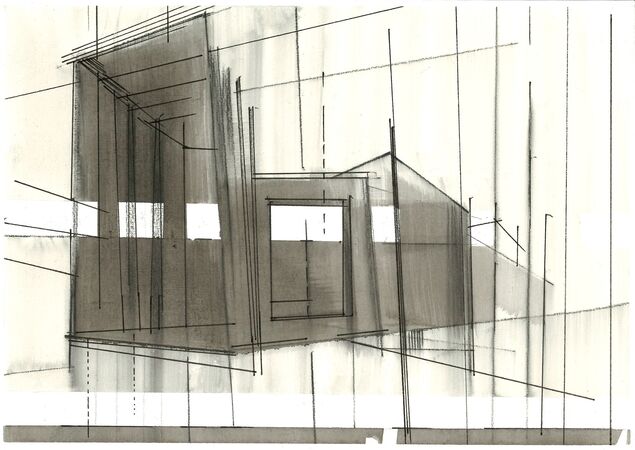Beethoven’s last three piano sonatas as prologue to a new music.
Prologue in Heaven
- Date:
- 7 Dec 2024,
19:00–21:30
- Age restrictions
- 12+
Programme
Ludwig van Beethoven (1770–1827)
Sonata no. 30 in E major, Op. 109 (1820)
I. Vivace ma non troppo
II. Prestissimo
III. Gesangvoll, mit innigster Empfindung. Andante molto cantabile ed espressivo
Sonata no. 31 in A-flat major, Op. 110 (1821)
I. Moderato cantabile molto espressivo
II. Allegro molto
III. Adagio, ma non troppo—Fuga. Allegro, ma non troppo
Sonata no. 32 in C minor, Op. 111 (1821–1822)
I. Maestoso—Allegro con brio ed appassionato
II. Arietta. Adagio molto semplice e cantabile
Subverting the standards of musical language that were generally accepted at the beginning of the nineteenth century, the three last piano sonatas of Ludwig van Beethoven mark the disintegration of classical form and throw open the door to the art of a new age. “I have never ceased to feel that I am present at the very act of the birth of music,” is how the great pianist Heinrich Neuhaus described the experience of playing the sonatas. In these works for piano and in his late string quartets, Beethoven experimented with the substance of sound, applying a sophistication that would not be truly appreciated until the modern era. The tonal and melodic discoveries of this triptych were ahead of their time, as were its dissonance (unheard of in the 1820s), sudden contrasts that literally tear apart the fabric of the music, and its complex rhythmic patterns. Listening to the first movement of Sonata no. 30, the musicologist Larissa Kirillina hears “a peculiar double perspective, like a face represented from several angles at once in a cubist painting by Picasso.”
Performed by
Yury Favorin piano
Yaroslav Timofeev concert host

Illustration: Danila Travin
The sonata in general, as a species, as traditional art-form was here at an end, brought to its end, it had fulfilled its destiny, reached its goal, beyond which there was no going, it cancelled and resolved itself, it took leave.
— Thomas Mann. Doctor Faustus
The treatment of the instrument in Beethoven’s late sonatas directly anticipates twentieth-century piano writing in the style of Aleksandr Scriabin and Olivier Messiaen: a vibrating texture permeated with shimmering light, the poetics of echo notes and overtones lend the music the rarefied atmosphere of mountain peaks and make it into a gradual triumph of spirit over matter. In the finale of Sonata no. 32, the composer combines the very top and bottom registers of the piano, leaving a gaping emptiness in the middle register. The gesture is perfectly aligned with the imaginative world of the whole triptych, which soars towards metaphysics, towards the supra-existential. Beethoven composed his last sonatas in parallel with his work on the Missa Solemnis. It is perhaps unsurprising, therefore, that philosophical and religious content shines through on every page of the music, demanding from the performer both ecstatic immersion and the utmost concentration.
Yury Favorin (b. 1986, Moscow) is a graduate of the Moscow Conservatory. He continued his studies at the Conservatory after graduation under Mikhail Voskresensky and then at the Mozarteum University in Salzburg under Jacques Rouvier. Favorin performs solo recitals and has given concerts with leading symphony and chamber orchestras in Russia, Europe, and Japan. He also plays free improvisational music in the Error 404 group, set up with the composer Alexey Sysoev and percussionist Dmitry Shchelkin.
Yaroslav Timofeev (b. 1988, Novgorod) is a musicologist, concert host, and lecturer. He is a graduate of the Moscow Conservatory, chief editor of Musical Academy magazine and has worked since 2010 at the Moscow Philharmonic Society (Russia’s largest concert organisation), where he leads a number of projects: Mum, I’m Crazy about Music (since the 2017/2018 season), The Language of Music (co‑author and presenter since 2018/2019), Thing-in-Itself (author and presenter since 2021/2022), and All Stravinsky (author and presenter since 2022/2023). Since 2017, he has performed as pianist with the Russian indie group OQJAV.

